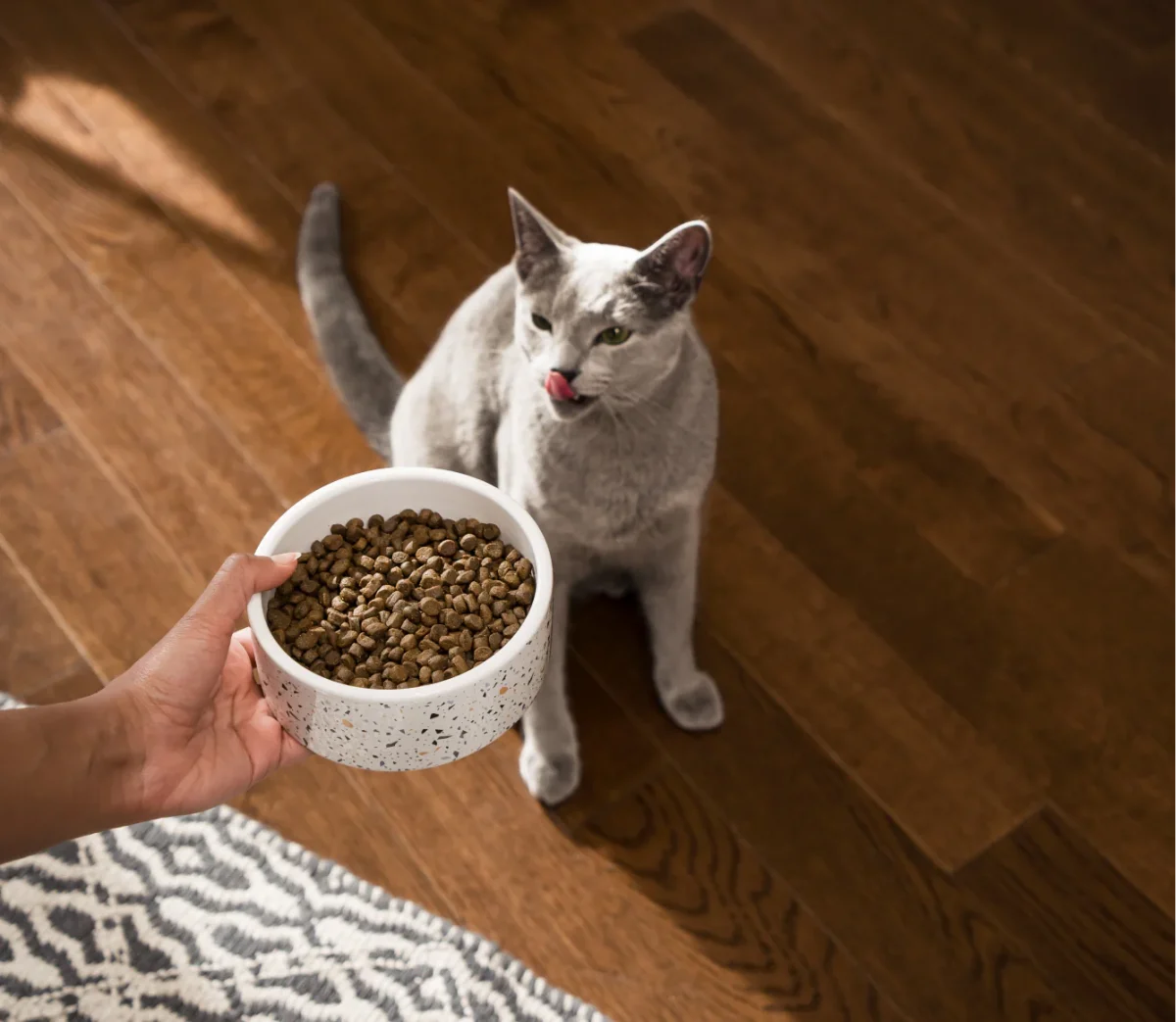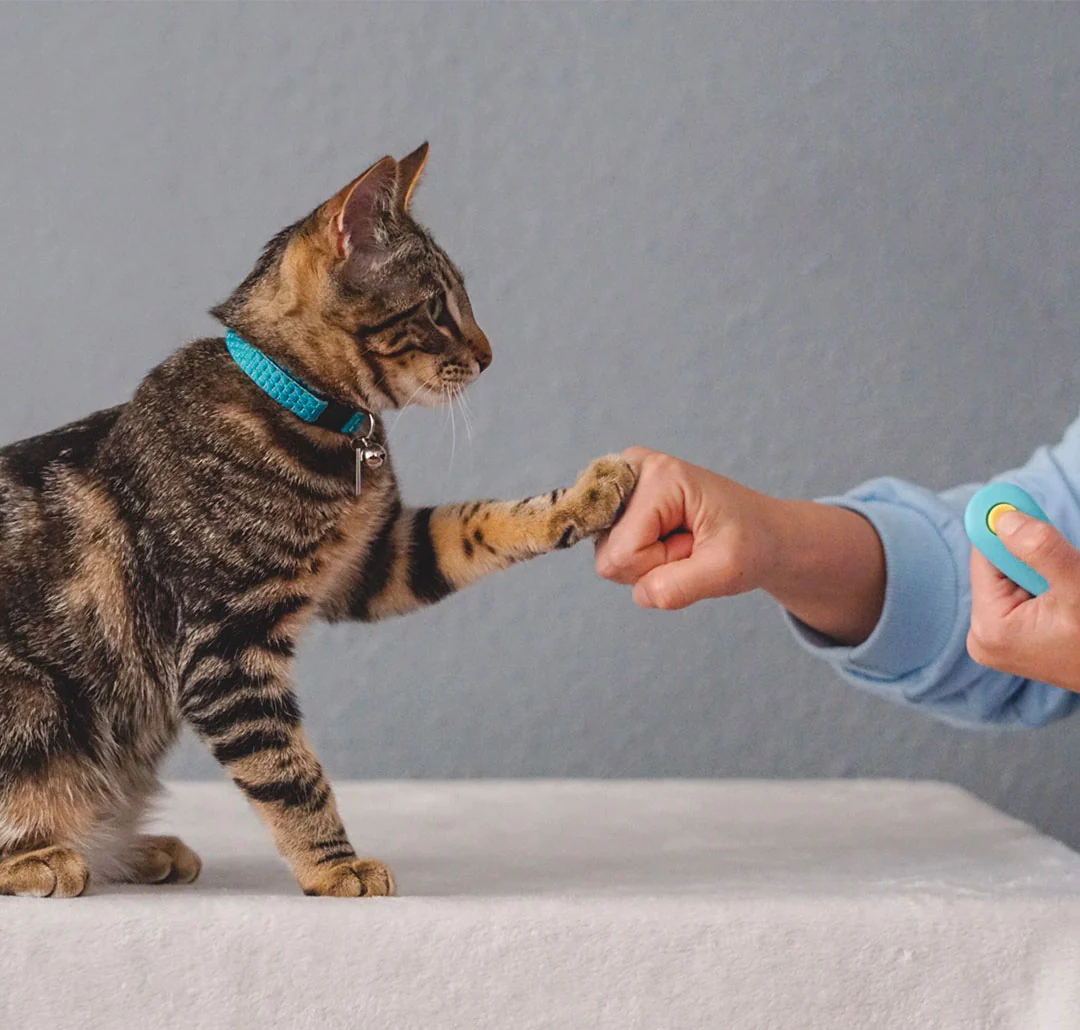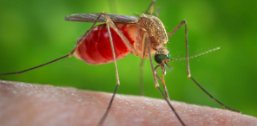
There are many creatures that live in New Jersey. You see many different types of animals everyday whether you notice or not, but did you know that there are actually some pretty dangerous animals that live here as well?
Mosquitoes
Many insects you encounter here in New Jersey give you the creeps, but did you know that some of them are actually pretty dangerous? Among these dangerous bugs are mosquitoes. It may be hard to believe, but mosquitoes could be one of, if not the most dangerous creatures in New Jersey. Some mosquito species carry diseases like malaria and West Nile Virus. When an infected mosquito bites you, it transmits the disease to you through its saliva. One of the most common diseases transmitted by mosquitoes is the West Nile Virus. There is no medication or vaccine for the West Nile Virus, and according to the CDC, 1 in 150 people develop a serious and sometimes fatal illness. Mosquitoes can also be dangerous for pets.

Luckily, there are ways to prevent diseases from mosquitoes. By remembering to wear bug spray while camping, hiking, or being out in nature on hot and humid days, and getting vaccines for the diseases you can, you can lower the risk of getting these diseases.
Black Widows
While most spiders you find are just plain creepy, the black widow spider is venomous. The female black widow spiders are twice the size of males, and can be 6-19 millimeters long. The females also are the only ones who are dangerous to humans. They can be identified by their red markings on their abdomen shaped like an hourglass. 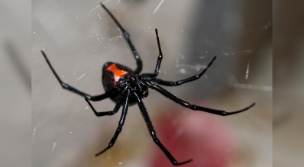 Black widows are the most venomous species of spiders in New Jersey with venom 15 times as strong as rattlesnakes. Thankfully, black widows rarely ever attack humans, though they will bite if in danger or when their web is disturbed. If you are ever bitten by one, go to a hospital immediately. The venom attacks your nervous system, and can be fatal to small children. Adult deaths from black widows are very rare, but possible. You can find black widows in your house. Black widows can be found in dimly-lit places like corners, closets, or cluttered areas. They do not like moisture.
Black widows are the most venomous species of spiders in New Jersey with venom 15 times as strong as rattlesnakes. Thankfully, black widows rarely ever attack humans, though they will bite if in danger or when their web is disturbed. If you are ever bitten by one, go to a hospital immediately. The venom attacks your nervous system, and can be fatal to small children. Adult deaths from black widows are very rare, but possible. You can find black widows in your house. Black widows can be found in dimly-lit places like corners, closets, or cluttered areas. They do not like moisture.
Wild Boars
Wild boars may look cute, but they can be very dangerous. Wild boars are invasive to New Jersey. Wild boars can be dangerous to you and your pet! They can be unpredictable, though they don’t typically attack humans. They can be provoked, especially if you come near a litter of babies. Male wild boars have canines protruding from their mouths which distinguish them from females. If you see one when you are outside, do not approach it. Fully grown wild boars are 5-8 feet in length, and can weigh up to 600 pounds!
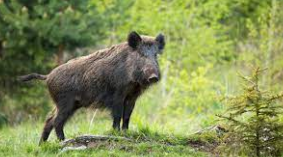
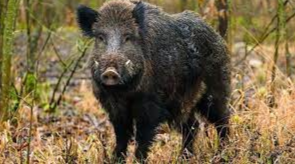
Conclusion
In conclusion, there are many creatures that live in New Jersey, but not all of them are harmless. The common mosquito, the black widow, and the wild boar are all examples of this. While it is good to be cautious, this doesn’t mean you need to live in fear. Just remember to not provoke wild animals, don’t go near them, be careful when outside, wear bug spray, and you will be fine!
Work Cited
Bird Watching HQ. “18 Most DANGEROUS Animals in New Jersey! (2023) – Bird Watching HQ.” Bird Watching HQ, 18 Aug. 2023, birdwatchinghq.com/dangerous-animals-in-new-jersey.
“Diseases.” CT.gov – Connecticut’s Official State Website, portal.ct.gov/Mosquito/Diseases/Mosquito-Transmitted-Diseases#:~:text=The%20virus%20develops%20and%20multiplies,%E2%80%9Cvector%E2%80%9D%20of%20the%20disease.
Gallagher, Katherine. “Invasive Species: Wild Boar.” Treehugger, 30 Apr. 2021, www.treehugger.com/invasive-species-wild-boar-5180784.
“Mosquitoes in the US | CDC.” Centers for Disease Control and Prevention, 5 Mar. 2020, www.cdc.gov/mosquitoes/about/mosquitoes-in-the-us.html#:~:text=West%20Nile%20virus%20is%20one,Virgin%20Islands%2C%20and%20American%20Samoa.
Szalay, Jessie, and Mindy Weisberger. “Black Widow Spiders: Facts About This Infamous Group of Arachnids.” livescience.com, 7 Dec. 2021, www.livescience.com/39919-black-widow-spiders.html. Trust, Woodland. “Wild Boar (Sus Scrofa) – British Mammals – Woodland Trust.” Woodland Trust, www.woodlandtrust.org.uk/trees-woods-and-wildlife/animals/mammals/wild-boar.
West Nile Virus | West Nile Virus | CDC. www.cdc.gov/westnile/index.html.

